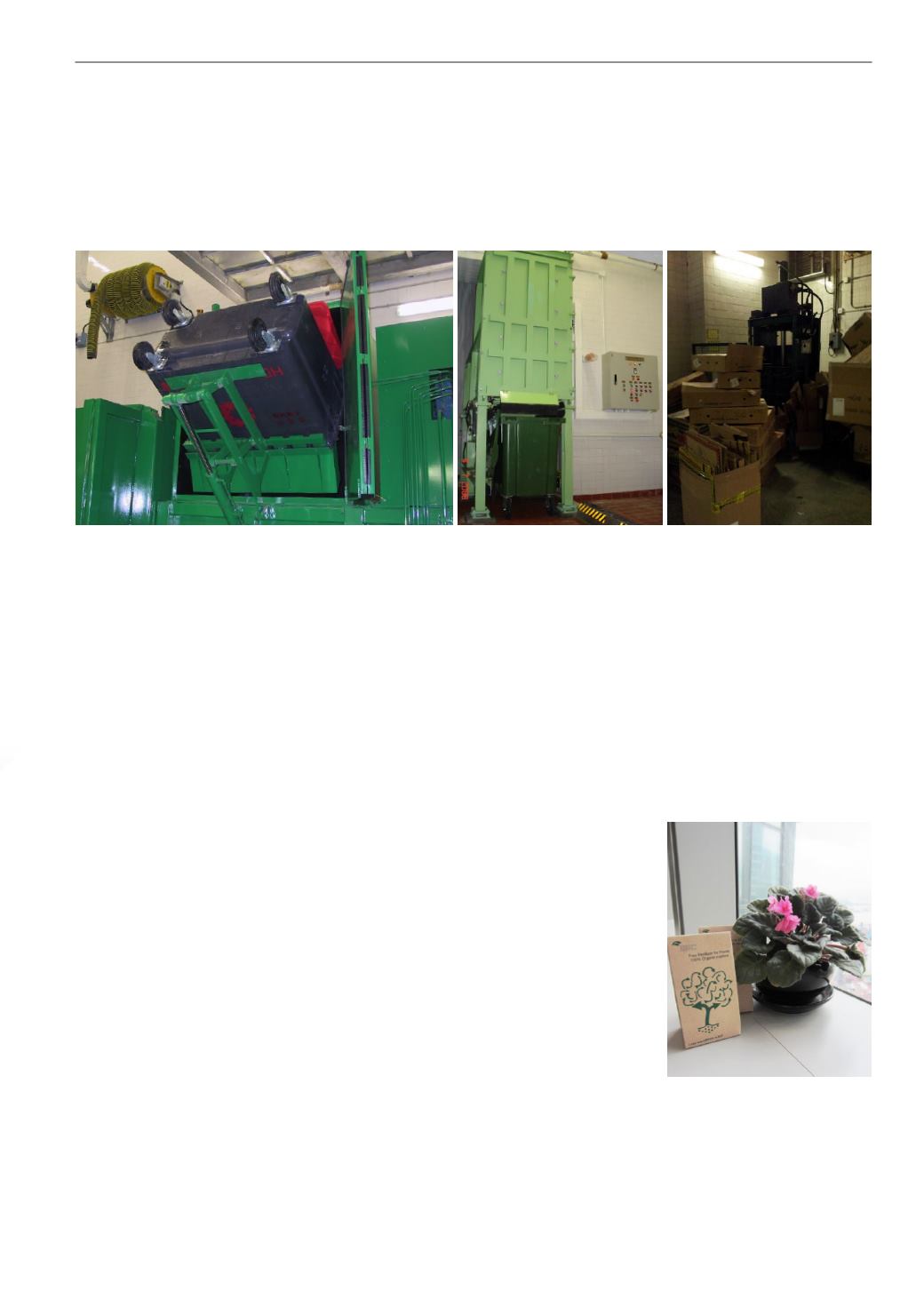
7.3
Waste treatment and composting strategies
Landfills in Hong Kong are running out of space. Improved waste treatment and composting technologies are introduced
here to help reduce the volume of waste and bring the waste to resource as fertiliser.
7.3.1 Waste treatment strategies
Figure 145 Central compactor system
(Source: Hong Kong Housing Authority)
Figure 146 Small scale
distributed compactor
(Source: Hong Kong Housing
Authority)
Figure 147 Baler for
compacting recyclable
(Source: Swire Properties
Limited)
For better treatment of commercial refuse and hygiene control, mall operators may consider:
• Installing a central compactor system in larger centres; or installing a small-scale distributed compactor system in
smaller centres. The handling system reduces refuse volume for storage, prevents odour leakage and minimises the
frequency of transportation.
• Installing de-odourisers in the refuse collection and storage chambers to tackle the odour problems.
The use of compactor for commercial refuse may generate wastewater or leachate and depending on the quantity and
strength of the leachate, a Water Pollution Control Ordinance license may be required for permission to discharge it into a
public sewer.
7.3.2 Composting strategies
Food waste is an untapped energy source that mostly ends up rotting in landfills,
thereby releasing
into the atmosphere. It is difficult to treat or
recycle food waste since it contains high levels of sodium salt and moisture, and is
mixed with other wastes during collection. Major generators of food waste include
hotels, restaurants, supermarkets, residential blocks, cafeterias, airline caterers, food
processing industries, etc.
Here are some tips on food waste handling and composting:
• Establish a communication mechanism for source separation and collection of food
waste from tenant restaurants and canteens
• Recycle waste to produce compost or animal feed, or delivered to future organic
waste treatment facilities for treatment
• Consider installing food waste decomposer or food waste pulping system in
shopping malls to treat their source separated food waste on site and recycle it as
organic fertiliser
• Not all food waste is suitable for composting, those recyclables and non-recyclables
are identified.
Figure 148 Compost turned
from food waste of restaurants
in International Commerce
Centre (ICC), Kowloon
(Source: Kai Shing
Management Services Limited)
7
Operation maintenance and management
7.3
Waste treatment and composting strategies
Hong Kong Green Building Council 167


